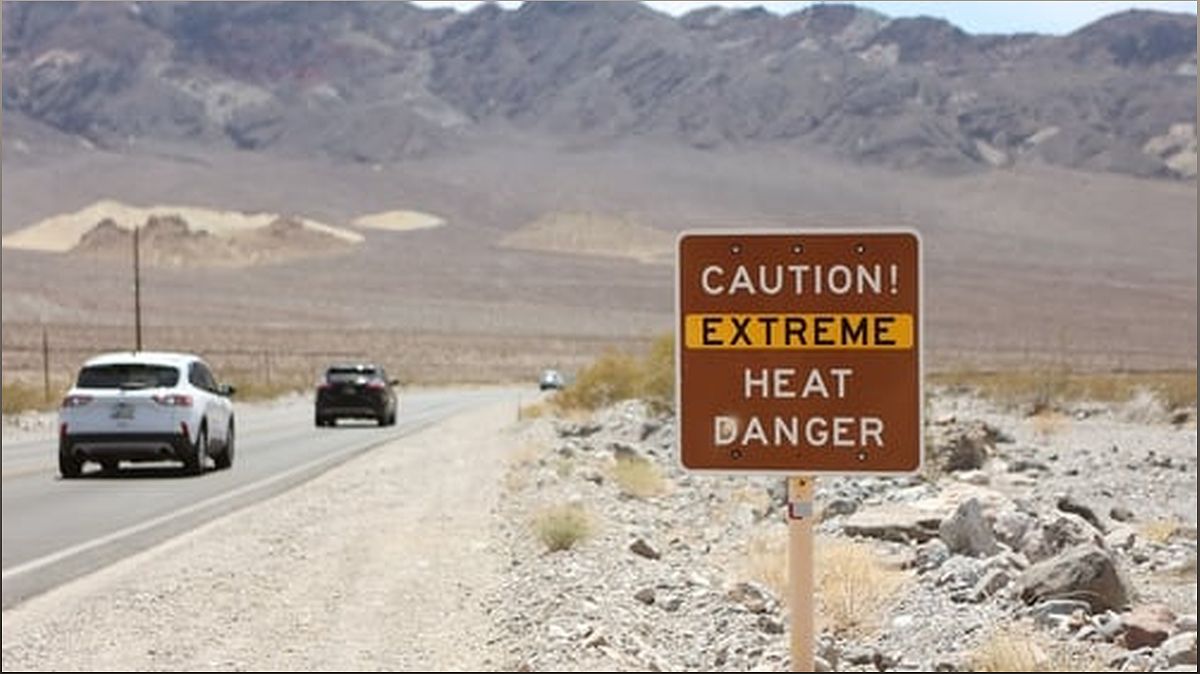Welcome, dear readers! Today, we delve into the astonishing news that 2023 is on track to shatter temperature records and become the hottest year in recorded history. Brace yourselves for a journey through rising temperatures, extreme weather events, and the critical discussions taking place at the COP28 talks in Dubai. Let's explore the fascinating details and uncover the implications of this alarming trend.
Unprecedented Temperatures in 2023
Discover the extraordinary rise in temperatures this year, breaking records and surpassing previous warmest years.
In the year 2023, we find ourselves in the midst of an unprecedented heatwave. The global average temperature has soared to 1.46 degrees Celsius above pre-industrial levels, setting the stage for this year to potentially surpass the previous record holder, 2016, as the hottest year in history.
November has been particularly noteworthy, as it shattered the record for the hottest November ever recorded. We experienced two days that were a scorching 2 degrees Celsius warmer than pre-industrial levels, a milestone never seen before. This alarming trend confirms the predictions made by scientists, who believe that this year could be the warmest the world has experienced in over 100,000 years.
As we witness these record-breaking temperatures, it becomes clear that urgent action is needed to address the underlying causes of climate change. The discussions at the COP28 talks in Dubai are crucial in determining the path forward.
Critical Discussions at COP28 Talks
Explore the key debates and negotiations taking place at the COP28 talks in Dubai, focusing on the fate of fossil fuels and the urgent need for action.
The COP28 talks in Dubai have become a battleground for crucial discussions on how to address climate change. One of the key points of contention is the fate of oil, gas, and coal, major contributors to global warming. Debates have centered around whether to 'phase out' or 'phase down' these fossil fuels.
A new proposal has emerged, suggesting an 'orderly and just' phase-out of fossil fuels. This approach takes into account countries' levels of development and reliance on hydrocarbons, allowing for a more tailored approach to emissions reduction. However, opposition from countries like Saudi Arabia and China, who oppose any mention of fossil fuels in the agreement, complicates the negotiations.
Another contentious issue is the rapid phase-out of unabated coal power. While many countries support this move, China, South Africa, and Vietnam have expressed opposition. These discussions are crucial in determining the actions that will be taken to combat climate change and reduce greenhouse gas emissions.
Extreme Weather Events Linked to Climate Change
Learn about the series of extreme weather events in 2023 and their connection to climate change, highlighting the urgency for action.
2023 has not only been marked by record-breaking temperatures but also a series of extreme weather events that are directly linked to climate change. Despite rising carbon emissions, the first 11 months of this year have been 0.13 degrees hotter than the previous warmest year, 2016.
The El Nino weather pattern has played a significant role in driving up temperatures in the second half of the year. September to November witnessed the hottest autumn months on record, with November alone being a staggering 1.75 degrees warmer than pre-industrial levels.
These alarming statistics bring us dangerously close to the 1.5 degrees Celsius threshold set in the Paris climate agreement. While breaching this limit would require sustained temperatures above 1.5C, the trend is clear. As greenhouse gas concentrations continue to rise, so do the temperature and the impacts of heatwaves and droughts.
The Ticking Time Bomb of Earth's Tipping Points
Discover the 26 Earth 'tipping points' that could lead to irreversible catastrophes if triggered, emphasizing the need for immediate action.
As if the rising temperatures and extreme weather events weren't enough cause for concern, researchers have identified 26 Earth 'tipping points' that could have catastrophic consequences if triggered. These tipping points, such as melting ice sheets, have the potential to bring about irreversible changes to our planet.
It is imperative that we take immediate action to mitigate the effects of climate change and prevent these tipping points from being crossed. The time to act is now, as the future of our planet hangs in the balance.

